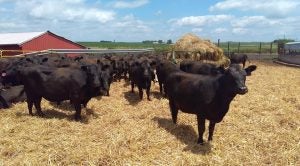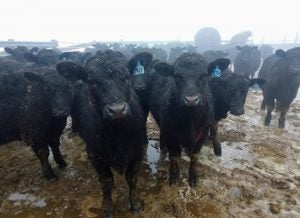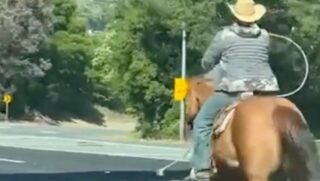How many times have we been a guest in someone’s home and the conversation goes a little something like this:
Person A: “Wow I love your house!”
Person B: “Well, thanks! Ugh, it’s so messy right now.”
Happens all the time, right? Generally speaking, when you know you have guests arriving, you’ll want to do your best to create a warm atmosphere and nice first impression. Having a clean house feels good to most people, but sometimes … life just gets in the way. Kids are messy! Life is busy and can be so overwhelming and chaotic!
Well, sometimes the same scenario can happen on farms. Farmers also, generally speaking, want their farms to be perceived as nice, clean, humane areas to raise livestock. But aside from just public perception, there are so many other reasons to ensure clean (or not so clean!) pens. And we shouldn’t judge what the farm looks like at first glance because you never know the story of why things look the way they do.
There are many factors that may affect pen cleanliness. Equipment use, health and comfort, or the biggest one — weather — are just a few challenges farmers deal with on a regular basis. Just take a look at one of our cattle pens and how different they look based on the weather!


What a difference, eh? These are from the same herd of cattle in the same pen, taken from the same spot. Ideally they would look like they do on the top everyday. Clean bedding, clean bodies, nice weather on a sunny July day. With a trained eye, the bottom pen still doesn’t look that bad. They’re animals. They live outdoors, they’re supposed to get a little dirty!
A reporter was on our farm the other day, and I said I didn’t want him to take photos because I thought our cattle looked a little muddy that day. He just laughed and said, “The paper only goes out to cattle farmers. If they looked too clean they’d get suspicious!” Ha! He’s got a point. Our fellow cattle farmers and ranchers totally get it.
The bottom photo shown here was taken in early spring after the snow had melted and it was gloomy outside. Even pasture-raised and grass-finished livestock can look so unacceptable sometimes if the weather is particularly bad. Farmers sometimes refer to themselves as “mud farmers” when the weather doesn’t want to cooperate or the seasons change.
And there are other factors. Sometimes farmers won’t scrape pens based on the weather forecast. If we are supposed to get a lot of rain for example, it doesn’t make sense to scrape and put down fresh bedding if it’s just going to get sloppy again anyway. Also, when we clean pens, we have to have a place to put the manure! On our Iowa farm, we like to spread manure in the winter time when the ground is frozen. That way the manure spreader won’t sink in to the ground and won’t get stuck in the mud. We may put manure in a temporary holding area until the weather conditions improve and we need those nutrients in the field.
You also may not know what’s happening on the farm when you see it. Maybe his spreader is broke down temporarily or a neighbor is borrowing it. Maybe he’s waiting for someone to come to do the work or it’s on their list of things to get done in the next couple days — you just never know. Larger scale farms also have a lot of compliance regulations on when they can haul and spread manure based on mandatory programs they must adhere to through state Natural Resources Departments or Water Quality Divisions or the federal Environmental Protection Agency, just to name a few.
Another factor to consider is what’s called a “pack.” When cattle pens have a healthy layer of manure, they actually prefer to lay in it because it keeps them cool and helps regulate their body temperature. When they walk on their own manure it packs it down tightly and gives them a cushion to rest on and can also prevent them from slipping and injuring themselves! So “messy” pens can sometimes be justified for health and livestock safety reasons. If cattle have a choice on a hot summer day to lay on a very clean pen versus a packed one, they’ll usually choose the packed one for cool comfort.
Of course, the industry isn’t perfect. Yes, some farmers are better than others, and sometimes you see farms that are dirtier than others, however, the point is don’t judge a farm by its cover. It can be easy to judge based on what you see, but have you ever actually asked the farmer what’s going on?
For example, there is a farm in my area that I never liked driving past. I always thought he kept them in cramped conditions and judged based on appearance, however it wasn’t until I asked him what was going on when I realized that the pens I was looking at were just temporary holding pens. He’s the kind of guy that buys and sells cattle in bulk when the price goes up a bit. Think of it like a stock trader that’s always buying and selling. So, it’s not that they live their entire lives like this; it’s just a temporary situation until the truck arrives to buy and sell. Again, you just never know the circumstance, and it’s detrimental to assume.
Sometimes livestock can also look cramped based on cleaning the pens. For example, maybe the dairy cows are moved over to one side of the barn temporarily while they’re cleaning the other side.
Sometimes livestock may look cramped based on photos, too. I’ve tried this photo experiment myself. We have around 400 head of livestock on our farm, and if the cattle are all huddled together in one area, a photo could make it look like they’re crammed in, but it doesn’t tell the whole story — that there’s an extra acre of space right next to them that the camera doesn’t share.
So you see … you just never know. Of course, this article isn’t meant to defend farmers that do have legitimate reasons to improve, but it’s also a good reminder of why things might look the way they do. A farmer’s profits depend on their health and well being; cleaner animals bring in more money when it’s time to sell, so it really is in their best interest to treat them with the utmost care. The better we treat them, the better they treat us! Please don’t judge before knowing the whole story and make sure you ask them what’s going on to avoid a potential misunderstanding.
Michelle Miller, the Farm Babe, is an Iowa-based farmer, public speaker, and writer, who lives and works with her boyfriend on their farm, which consists of row crops, beef cattle, and sheep. She believes education is key in bridging the gap between farmers and consumers.



